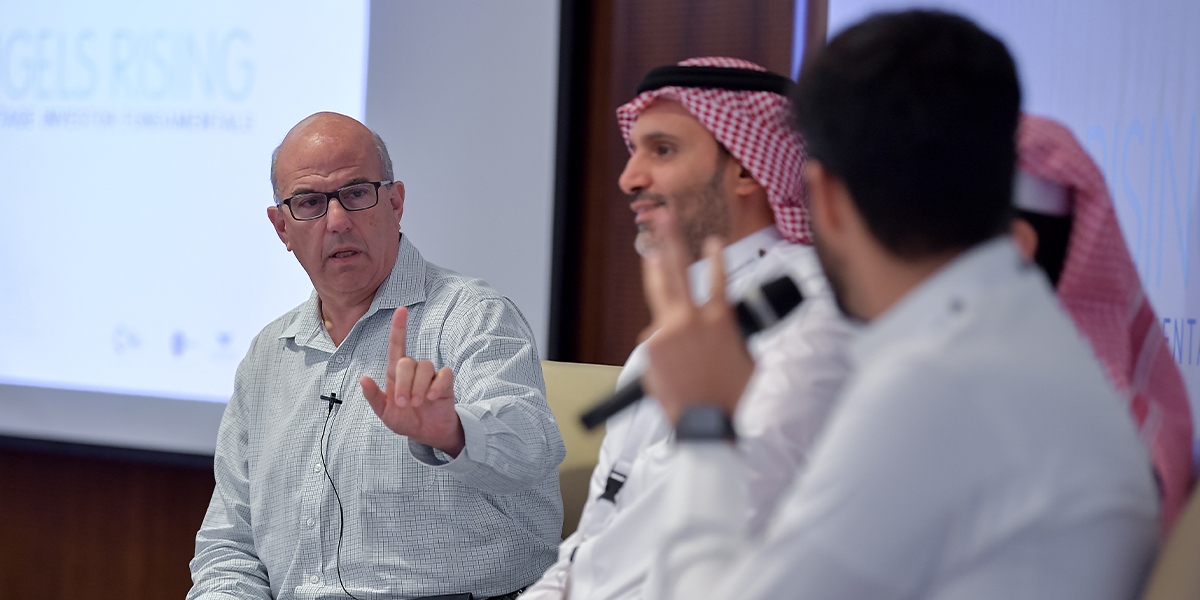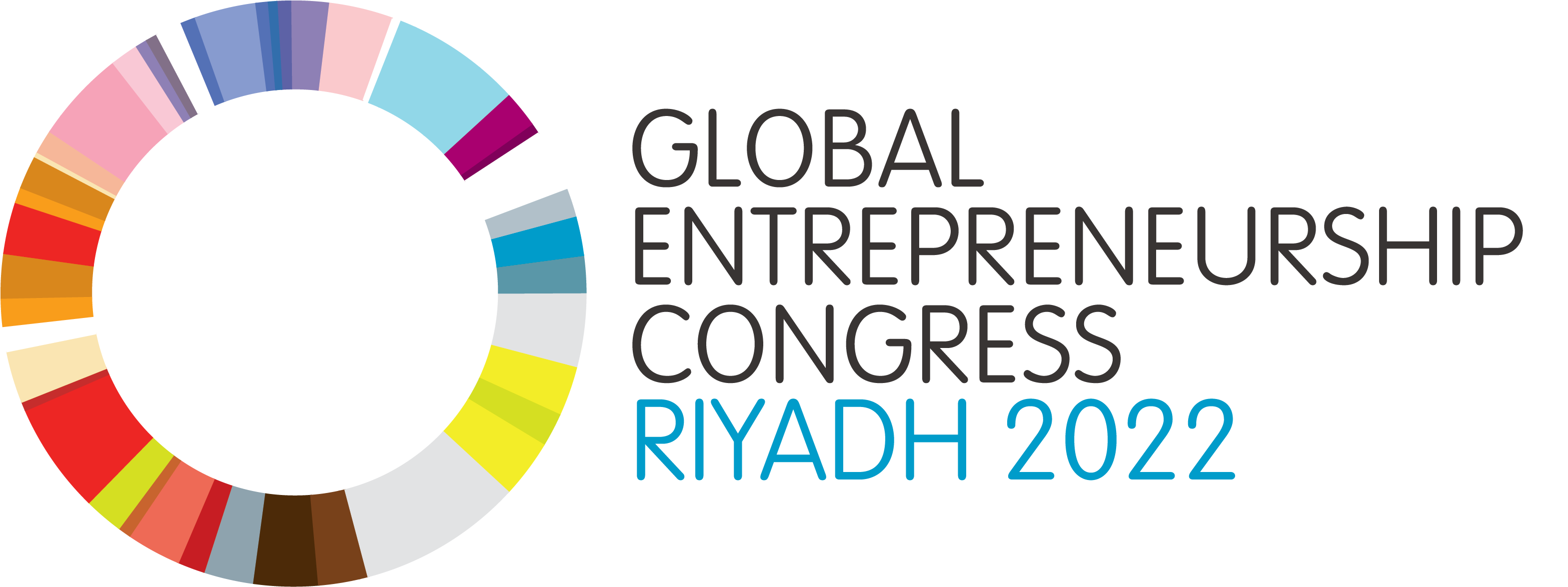Supporting the Next Generation of Entrepreneurs
A global entrepreneurial revolution has taken hold. The startup economy is worth in excess of $3.8 trillion today, according to the 2021 Global Startup Ecosystem Report—more than the individual GDP of most G7 economies. Every year, investments in early-stage and growth-stage companies are reaching new highs.
“It is entrepreneurs themselves, and their innate characteristics, that really explain global growth in entrepreneurship,” says Saleh Ibrahim Alrasheed, Governor of the Small and Medium Enterprises General Authority (Monsha’at) of Saudi Arabia. “The pandemic obviously led to a tough economic environment for businesses and national economies. But amid that difficulty, something else was happening: Entrepreneurs saw opportunities, not just to adapt their business models in the short term—a restaurant offering takeout during lockdown, for example—but also to identify entirely new gaps, such as the potential for growth in online learning due to the shift in work-life behavior.”
This revolution is happening not only in mature startup hubs like Silicon Valley, London and Shanghai, but also in hundreds of emerging ecosystems around the world. Cities such as Johannesburg, Milan and Medellin, Colombia are investing heavily in entrepreneurs to take their economies forward. The Global Startup Ecosystem Report shows that among the 91 ecosystems that created unicorns (companies valued at more than $1 billion) in 2020, unicorns emerged for the first time in cities like Montevideo, Uruguay, Busan, South Korea and Pune, India.
Saudi startup boom
Saudi Arabia, the biggest economy in the Middle East, is no exception to this trend and is naturally fertile ground for entrepreneurs. The possibilities of its entrepreneurship ecosystem have been unleashed by Vision 2030, the national transformation program launched in 2016 to modernize the economy and diversify income beyond oil and gas.
In addition to setting out a broad array of reforms across all economic sectors, which has created economic activity that SMEs can take advantage of, specific targets have been set to spur innovation and growth, including increasing small businesses’ contribution to GDP from 20% to 35% and boosting foreign direct investment from 3.8% to 5.7% of GDP by 2030.
Monsha’at is leading the charge, and the organization works on supporting, developing and nurturing the SME sector in line with best global practices. Its role is to implement programs and projects to promote the culture and spirit of entrepreneurship and innovation; diversify sources of financial support for SMEs; stimulate venture capital (VC) initiatives; and set policies and standards for financing SME projects. It also provides administrative and technical support for SMEs and supports them in developing administrative, technical, financial, marketing, human resources and other capabilities.
As a result—bucking the global trend that saw a decline in entrepreneurial activity during the pandemic—the Kingdom reported that 2021 was its best year yet for venture activity. Funding for startups nearly tripled year-over-year to a record $548 million across 139 deals, according to the 2021 Saudi Arabia Venture Capital Report published by MAGNITT.
Unifonic, a messaging platform, secured the country’s first VC megadeal, raising $125 million—the largest-ever funding round closed by a Saudi startup at any stage. Saudi Arabia is now the second-most funded country in the Middle East and North Africa, after the United Arab Emirates.
“Things changed dramatically after Monsha’at was created,” says Salem Aljawini, co-founder of outdoor digital advertising startup Shiftah. Of course, pioneers of e-commerce thrived in the Kingdom before 2016, such as Haraj, the most popular online classified ad marketplace since it launched in 2008, and e-payments app Geidea—whose logo is found on retail payment terminals all over the country—which laid the foundational infrastructure for that sector. But before Vision 2030, “most people thought about starting traditional businesses only,” he says.

Entrepreneurs such as Aljawini—who also founded RasMal, which provides software that helps companies manage their capitalization tables—point to three pillars that have transformed the Saudi startup environment.
The first is access to capital. The government-owned Saudi Venture Capital company was set up to encourage investment towards VC, including co-investing with angel investors, and this initiative has unlocked investment to such an extent that government support has dropped to a ratio of one to five as funds now flow organically, says Mohammed Aldossary, co-founder and CEO of digital marketplace Sary. Meanwhile late-stage investors can take comfort from the creation of a less regulated stock exchange specifically for startups, which offers a clear and sustainable exit platform in the form of a public market.
The second pillar is the overall entrepreneurial ecosystem. The Kingdom has pushed through a raft of measures to strengthen physical, commercial and professional infrastructure, improve the regulatory framework and streamline startup procedures to simplify market entry. The creation of accelerators and incubators tailored to various industries, the expansion of startups abroad and the presence of global VC investors, such as Plug and Play and 500 Startups, are testament to an environment that is nurturing innovation.
The final pillar is the quality of the founders and their teams. Saudis with successful careers—historically working in traditional jobs and industries—are now stepping out to set up innovative businesses of their own. And the new generation is increasingly joining them.
The next phase must involve reducing the barriers to movement so outside talent can come to work in the region, says Aldossary.
“We will also need large private-sector players to come in and build infrastructure, such as cloud services, if we want to catch up with global trends in artificial intelligence,” he says. “Meanwhile, late-stage investment remains sacred in the region, and it will require further stimulus, further incentives, further motivation to come.
New industries
As the transformation of the Saudi economy continues at lightning speed, entire industries are being created that entrepreneurs can tap into and turn ideas into business models. The entertainment sector, valued at just $24 million in 2020, is forecast to grow by almost 50% a year to reach $1.17 billion by 2030, U.S.-based Research and Markets said in a study last year. There are similarly vast opportunities in sectors such as tourism, technology and real estate.
“Since 2016, a host of sectors has been liberalized, and this has created significant opportunity for SMEs, underpinned by two key factors,” says Alrasheed. “The first is an enviable consumer market that provides significant headroom for SMEs to scale quickly. The second is a government direction that supports localization and actively includes SMEs up and down the value chain. As the SME space grows, thanks to a broad spectrum of financial and non-financial support, such as lending programs and accelerators, we encourage entrepreneurs and early-stage SMEs to follow their ideas and take advantage of this unique moment in Saudi history.”
